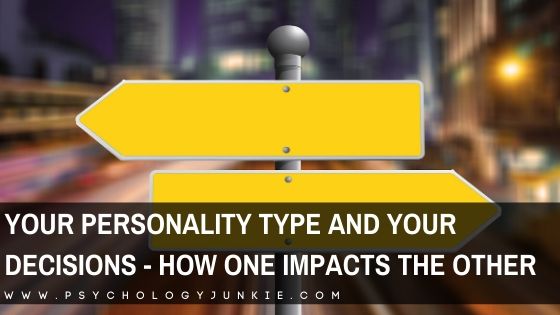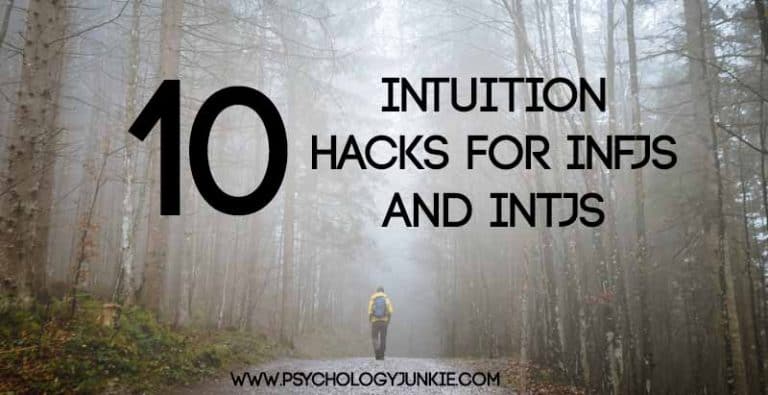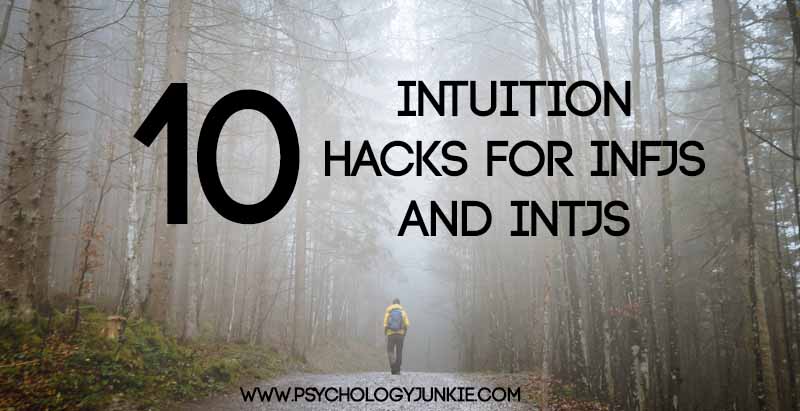Your Personality Type and Your Decisions – How One Impacts the Other
Some of the biggest fights of our lives boil down to differences in decision-making! In marriage, parenting, and careers, people tend to butt heads over their choices. “Hurry up!” says one partner to another, “Give me more time! You’re too bossy!” retorts the other. If we understood the impact that our personality types have on our decisions than I believe that a lot less arguments would happen.
The information in this article is inspired by the research of Linda Berens, author of Understanding Yourself and Others: An Introduction to Interaction Styles and creator of The Berens CORE™ Approach.

Not sure what your personality type is? Take our new personality questionnaire here. Or you can take the official MBTI® here.
This article contains affiliate links. If you purchase an eBook from one of my links I get a small percentage back to help run my site.
Deliberate Decision Makers – INTJs, INFJs, ISTJs, and ISTPs
Intensity. Focus. Strategy. These three things define the decision-making style of these personality types. Don’t walk in on them while they’re thinking through a decision unless you want to get a tense reaction and (from the INFJ anyway) a pained attempt at cordiality.
These types put a lot of thought into their decisions. They try to tune out potential distractions so that they can delve into their thoughts and maintain a focused energy. Their goal is to anticipate what will happen and strategize to get the best possible results.
The negative side of being in this group is that decisions can take a while. These types feel like they have to get their logic or vision completely fleshed out in their mind before they take action (especially for the Judging types in this group). Another downside is that once these types make a decision, they’re unlikely to change their mind. Stubbornness is a typical quality of these types.
How to Identify a Deliberate Decision Maker:
- Their core drive is to have a plan of action.
- They hate not knowing what is likely to happen.
- When stressed, they withdraw and shut down so they can think.
- They have a casual, erect posture.
- They dislike small talk.
- They are very focused on the task at hand.
- They dislike being interrupted a great deal.
- They hate being rushed.
- They want to know the “Why” behind what’s happening at the moment.
- They tend to appear quiet most of the time.
- They have very intense and focused energy.
- They don’t like “beating around the bush.”
Consultative Decision Makers – INFPs, ISFJs, INTPs, and ISFPs
Integration. Openness. Precision. These three things define the decision-making style of the consultative personality types. Don’t rush them, pressure them, or pull rank if you want to win their respect in a decision. If you do, they may take a surprisingly rebellious stance as they fight for more data and time.
Consultative decision-makers try to get a wide variety of input from various sources and individuals. They want to make sure they’re getting the highest-quality outcome possible, so they don’t mind taking their time, brainstorming, and patiently sorting out all the options. They have a skill for getting information in a one-on-one setting with other people.
People with this decision-making style like having lots of time to take in what’s there, scope things out, and they prefer to stay flexible so that they can modify their decision to get the best result. They have a deep hunger to have all their ideas and information fit together well. Disharmony in ideas, the environment, and information bugs them.
More than anything, people in this group believe that it’s worth taking extra time to reconcile many different ideas and inputs. They believe that if they keep working on things and getting more information, they can resolve any disharmonies or inconsistencies.
The negative side to being in this group is that people tend to get flustered and impatient, rushing them to decide faster than they’re ready for. Their decision-making process isn’t always visible to outsiders, either, who may feel that they are being left out of the decision because so much of the analysis is done internally and privately.
How to Identify a Consultative Decision Maker:
- Their core drive is to get the best possible result.
- They like integrating and harmonizing information.
- They become quiet and rigid when stressed.
- They dislike conflict.
- They tend to be quiet and reflective.
- They are typically unassuming and accommodating.
- They prefer a quiet, friendly atmosphere.
- They prefer a slow, calm pace.
- They hate to be rushed or interrupted.
- They take regular pauses while speaking.
- They need ample reflection time.
- They hate it when people finish their sentences for them.
Quick Decision Makers – ENTJs, ESTPs, ENFJs, and ESTJs
Determination. Achievement. Boldness. These three words define the quick decision-makers. These types like having a sense that progress is being made and that the worst decision you can make is a slow one. These types believe that time is of the essence and they hate procrastination and dawdling. They often have a strong presence and give off the vibe that, “things are under control.”
Quick decision-makers are worried that nothing will get done, so they have a sense of urgency that propels them through life. Accomplishment and checking off to-do lists stimulates them and gives them a sense of happiness and comfort.
Quick decision-makers are skilled at articulating their vision and leading. They have a knack for giving people a vision of where they are going and leading them to the desired goal. They know that they can accomplish more with the right people than they can alone, so they will try to inspire others to join them in their efforts.
The negative side of being in this group is that sometimes the best decisions are ones that are slow and carefully thought-out. Sometimes in their rush to reach a conclusion, quick decision-makers hurriedly do the quickest thing they can and sacrifice quality for expediency. They can also seem overbearing to other types if they aren’t careful.
How to Identify a Quick Decision-Maker:
- They are typically energetic and restless.
- Their energy is usually fast-paced and focused.
- They like to socialize with purpose.
- They are typically straightforward and dislike “beating around the bush.”
- They appear decisive and bold.
- They know how to spot the right people for the job and motivate them to do it.
- They make a lot of direct eye contact.
- They often appear confident and goal-oriented.
- They are typically friendly but focused.
- They often get bored with small talk and trivialities.
- Their core drive is to get results.
Consensual Decision Makers – ENFPs, ESFJs, ENTPs, and ESFPs
Energetic. Fun. Engaging. People in this group are quick to show their thoughts and/or emotions. Getting everyone involved and excited about a decision is something they excel at. Often persuasive, they seek open discussion, brainstorming, and a sense that everyone has a voice to be heard. They believe that during a conversation more information will come up that can move the decision forward. They trust this emerging process to give them the best solution to the problem at hand.
People in this group want everyone to work together towards a common goal. They believe that decisions should be a group process, and tend to frown upon people who pull rank, boss others around, or take on an air of superiority. They have a knack for facilitating group discussions and mitigating disagreements and offenses.
One of the downsides of being in this group is that sometimes the best decisions won’t make everyone happy. And the process of hearing everyone’s perspective can be time-consuming and leave things getting lost in the shuffle.
How to Identify a Consensual Decision Maker:
- They have a need to be involved and involve others.
- They enjoy brainstorming and working as a team.
- They encourage active participation and expression.
- They often appear energetic and animated
- They are often gregarious and charming
- They have a knack for seeing things in new ways
- They enjoy energizing and catalyzing others
- They typically have a warm tone of voice
- They often use open gestures
- They ask open-ended questions
- They have a higher tolerance for small talk than many types
- They enjoy exploring options
- They enjoy adding elements of fun to every experience
- They often use storytelling in their speech
What are your thoughts?
Find out more about your personality type in our eBooks, Discovering You: Unlocking the Power of Personality Type, The INFJ – Understanding the Mystic, and The INFP – Understanding the Dreamer. You can also connect with me via Facebook, Instagram, or Twitter!
















For deliberate decision makers maybe it’s not stubbornness but a well though decision would be like others underestimate our though process. I would call my self stubborn if I don’t have right about my decision-opinion and I don’t change my mind.
As a very strong ENFJ, I identify way more with Consensual Decision Makers. Sure, I worry that nothing may get done, but I NEVER make hasty decisions unless forced to, and that stresses me out beyond belief, leaving me drowning in doubt and worry. It felt very odd to be in that group, esp. paired with ENTJs. I dislike how abrupt and unfeeling an ENTJs choices and conclusions can be. They don’t take enough into consideration. May I inquire how you came to that conclusion? I’m not seeing the connection.
As an INTJ, I think it’s easy to say we’re stubborn rather than logically thoughtful. We take time, energy, and effort to logically think through our decisions. Our decisions are thought out so well that we INTJs often can visualize the outcome by placing the steps in the right order to achieve that goal. We don’t make decisions quickly or illogically and we certainly don’t need others to weigh in. We use logic and data to come to decisions that are well thought out. Some may call us stubborn for not easily being swayed from these well thought out decisions, I shall call it discernment. These decisions don’t come easily to us, that’s why we are rarely easily swayed. You can still change our minds, albeit difficult, you just have to have better information and data than we do.